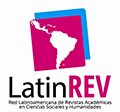CALL EXTENSION DOSSIER | Information Disorders in Latin American Media Ecosystems
DOSSIER
Information Disorders in Latin American
Media Ecosystems
Guest editors: Diego García Ramírez* and Andrés Lombana-Bermúdez**
New deadline for submissions: June 3, 2024
**
Dixit invites scholars, researchers, and practitioners to contribute to a thematic dossier on disinformation studies and information disorders with a focus on Latin America.
The proliferation of problematic information in media ecosystems has contributed to the rise of a series of informational disorders that represent unprecedented challenges for contemporary societies (Del-Fresno-Garcia, 2019; García-Marín, 2020; Tucker et al., 2018; Wardle & Derakhshan, 2017).
Conceptualized from different perspectives and using different terms —"disinformation," "misinformation," "alternative facts," "fake news," "deepfakes"— information disorders are characterized by the intentional or unintentional dissemination of inaccurate content and by its rapid production and propagation in networked environments.
From politics to economics, culture and public health, the abundant and rapid circulation of false and misleading information through digital and analog media has generated alterations in the development of democratic processes, trust in institutions and public health, among others. Although information disorders are a problem of global scale, they manifest themselves in a particular manner in regional, national and local contexts according to specific historical, cultural, technological, political and economic conditions.
The objective of this dossier is to bring together research that advances the understanding of information disorders in Latin American media ecosystems, their impact in different areas and strategies to mitigate their effects.
Researching information disorders presents several conceptual and methodological challenges (Altay et al., 2023; Anderson, 2021; Camargo & Simon, 2022). Despite the boom in research from communication and other disciplines on this problem in the last decade, and the efforts to counteract its spread and effects by governments, companies and academics, the terminology used to explain information disorders continues to be debated and presents cultural, contextual and linguistic differences. Likewise, at the methodological level, the dynamic nature of the problem, the scale and volume of information, the diversity and rapid evolution of digital platforms, ahistoricism and ethical considerations represent challenges that researchers must confront. Successfully addressing these challenges requires interdisciplinary collaboration, ethical frameworks, and a commitment to keep abreast of the latest technological advances.
In this sense, the following questions arise: What are the methodological and conceptual approaches to investigate and understand information disorders in the Latin American context? How have they evolved in the last decade?
For this dossier, we call for contributions in the form of research articles that expand the boundaries of current knowledge in studies on disinformation and information disorders.
Suggested thematic lines, but not limited to the following:
- Methodological approaches to the study of information disorders.
- Definitions, typology and formats of information disorders.
- Populism, democracy and disinformation.
- The role of fact-checkers in the face of information disorder.
- Social networks, digital platforms and disinformation.
- Artificial intelligence, automation and information disorders.
- Violent (hate) speech, freedom of expression and information disorders.
- Journalism in the face of disinformation.
- Incentives for the production, amplification and consumption of disinformation.
- Economics and commercial logic of information disorder.
- Measures to counteract and adapt to information disorders (e.g. media and information literacy, regulation, content moderation).
- Costs of information disorders in economic, political, public health, and other terms.
- Paradigmatic events: pandemics, electoral processes, social protests, international conflicts, local and global case studies.
- Human rights, inequalities and information disorders.
Important information
- Applications are received exclusively through the web.
- Submissions will be made to the "Dossier | Information Disorders" section.
- Closing date for submissions is April 20, 2024.
- Editorial and section policies: About the journal | Dixit (ucu.edu.uy)
- Guidelines for the submission of manuscripts: Submissions | Dixit (ucu.edu.uy)
- Queries: dixit@ucu.edu.uy
References
Altay, S., Berriche, M., & Acerbi, A. (2023). Misinformation on Misinformation: Conceptual and Methodological Challenges. Social Media + Society, 9(1). https://doi.org/10.1177/20563051221150412
Anderson, C. W. (2021). Propaganda, misinformation, and histories of media techniques. Harvard Kennedy School (HKS) Misinformation Review, 2(2). https://doi.org/10.37016/mr-2020-64
Camargo, C. Q., & Simon, F. M. (2022). Mis- and disinformation studies are too big to fail: Six suggestions for the field’s future. Harvard Kennedy School (HKS) Misinformation Review, 3(5). https://doi.org/10.37016/mr-2020-106
Del-Fresno-García, M. (2019). Desórdenes informativos: sobreexpuestos e infrainformados en la era de la posverdad. El Profesional de la Información, 28(3), e280302.
García-Marín, D. (2020). Infodemia global. Desórdenes informativos, narrativas fake y fact-checking en la crisis de la Covid-19. El Profesional de la Información, 29(4), e290411.
Tucker, J. A., Guess, A., Barbera, P., Vaccari, C., Siegel, A., Sanovich, S., Stukal, D., & Nyhan, B. (2018). Social Media, Political Polarization, and Political Disinformation: A. Review of the Scientific Literature. SSR Electronic Journal. https://doi.org/10.2139/ssrn.3144139
Wardle, C., & Derakhshan, H. (2017). Information Disorder: Toward an interdisciplinary framework for research and policy making. Council of Europe. https://edoc.coe.int/en/media/7495-information-disorder-toward-an-interdisciplinary-framework-for-research-and-policy-making.html
----
* Doctor in Communication and Culture from the Universidade Federal do Rio de Janeiro, Brazil. Master in Communication from Pontificia Universidad Javeriana, Colombia. Anthropologist from the Universidad de Antioquia, Colombia. Professor of the Journalism and Public Opinion program at the School of Human Sciences, Universidad del Rosario, Colombia. Some of his research interests are journalism and media analysis, political economy of communication, media ecosystems and digital platforms.
** Assistant Professor in the Department of Communication at the Pontificia Universidad Javeriana, Colombia. Research associate at the ISUR Center at Universidad del Rosario, Colombia, and at the Berkman Klein Center for Internet and Society at Harvard University, USA. He works at the intersection between critical Internet and data studies, youth, new literacies and media ecosystems.













